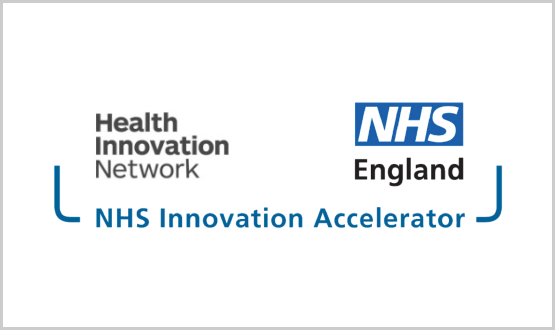The NHS Innovation Accelerator’s role within the healthcare sector

In today’s rapidly evolving healthcare landscape, innovation has become a necessity. With the NHS facing ever-increasing demands, the imperative for healthcare solutions to rise to the occasion has never been clearer.
Established in 2015, the NHS Innovation Accelerator (NIA) arose from the necessity to support NHS organisations in adopting innovation by increasing access to and knowledge of evidence-based health and social care solutions. This Accelerated Access Collaborative commissioned three-year support programme, in collaboration with the Health Innovation Networks, NHS stakeholders and mentors from diverse backgrounds, aims to identify and nurture high-impact innovations proven to tackle the pressing challenges of today’s healthcare landscape.
The impact of the NIA extends beyond individual innovations. By helping to ignite change and foster a culture of innovation within the NHS, the NIA plays a pivotal role in driving fundamental transformation across the system. Each year, the NIA supports a variety of innovations from digital healthcare solutions to care delivery models and cutting-edge medical devices, aiming to improve patient outcomes and to overall enhance the quality of care.
Cutting-edge solutions like Anya, Limbic, Wysa and Emergency Role Allocation (ERA) Systems are at the forefront of the innovation space. Since their integration into the NIA, the Fellows, distinguished representatives from each innovation, have achieved remarkable milestones and demonstrated substantial growth. These achievements include Anya’s £500,000 award from NHS England through the recent SBRI initiative to tackle health inequalities in maternity care, Limbic securing a multi-million investment and reaching a 250,000-patient milestone, Wysa winning phase 2 of the Scottish government innovation challenge enabling them to scale for thousands of young people across South-East Scotland, and ERA raising pre-seed investment following a successful NHS implementation. Notably, ERA has also earned recognition from NHS Resolution for its efforts in supporting birth trauma and post-natal mental health. These accomplishments serve as significant highlights from the Fellows’ inaugural year with the NIA. Additionally, the collaborative endeavours of our Fellows have directly impacted over 2 million patients in 2023, emphasising the tangible influence of their innovations on healthcare delivery.
Our collaborative partnerships are pivotal to the NIA’s mission. By fostering close ties with key NHS teams such as the Health Inequalities Improvement Programme, and the Race and Health Observatory, as well as broader networks like Crown Commercial Services, we continually reaffirm our commitment to advancing high-quality, inclusive healthcare throughout the UK. These partnerships enable us to tap into diverse expertise and resources, ensuring that our efforts are tailored to address the unique needs of all communities. Through joint initiatives and shared goals, we strive to drive meaningful change and promote health equity across the nation.
Mindy Simon, Co-Director at the NHS Innovation Accelerator says, “Every day, we are proud witnesses to the remarkable innovations that are shaping the future of healthcare. As the NHS Innovation Accelerator, we stand alongside the NHS and social care, helping to address, through our Fellows and their innovations, the challenges faced. Together, we are driving change, pushing boundaries, and paving the way for a brighter healthcare future.”
Dr Chen Mao Davies, Founder & CEO at Anya says, “It’s fantastic to be part of a community of healthcare innovators in a space where each of our contributions are all necessary. Working alongside organisations driving transformation, empowers us to collectively tackle the most pressing challenges in healthcare; making a real difference in people’s lives.”
The role of innovation in the healthcare ecosystem is apparent. The need will only grow as pressures increase and unforeseen challenges lay ahead. The NIA will continue to work with the NHS and social care to champion innovation and contribute to the present and future of health and social care.



